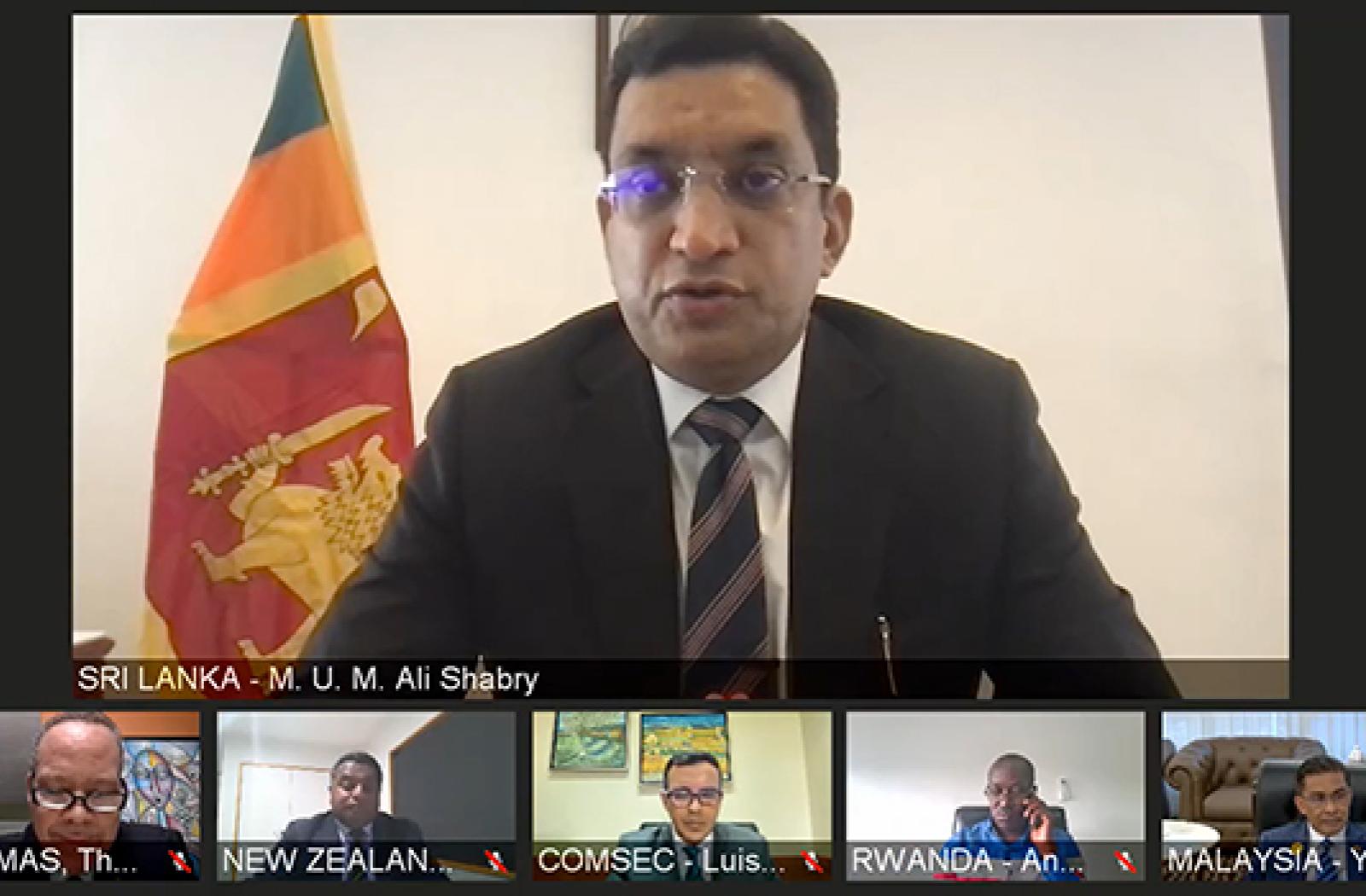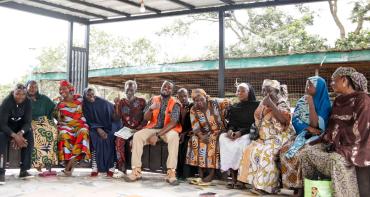Commonwealth Law Ministers have called for increased international co-operation to enable equal access to Covid-19 vaccinations.

Commonwealth Law Ministers have called for increased international co-operation to enable equal access to COVID-19 vaccinations.
A special virtual meeting of Law Ministers was convened on 18 February to discuss legal implications of the pandemic - in particular on access to justice, upholding the rule of law, and equitable access to essential medicines and equipment.
Commonwealth countries have recorded more than 19 million Covid-19 cases and 370,000 deaths.
Legal challenges
During their meeting, Law Ministers shared their views and experiences of legal challenges which have arisen amid the pandemic.
Ministers stressed how lockdowns, social distancing, and other emergency measures affected courts and the administration of justice.
It was noted that the pandemic has accelerated the digitalisation and modernisation of judicial services, with technology such as video-conferencing being widely used in courts in many Commonwealth jurisdictions.
Ministers agreed on a range of outcomes from the meeting, including a commitment to work collaboratively to support timely and equal access to vaccines for the Commonwealth and all other countries.
They also issued a plea to Governments to provide adequate resources to ensure the realisation of equal access to justice for all in the Commonwealth.
Opening the Law Ministers meeting, the Commonwealth Secretary-General Patricia Scotland said: “Most countries in the Commonwealth are yet to receive vaccines. There is a real need for increased international co-operation to ensure that no one is left behind.
“We are all in this together. No one country is safe until we are all safe. The pandemic knows no territorial boundaries.”
Build back better
The Secretary-General spoke of the pandemic’s “untold damage” to justice systems and the increase in barriers to equal access to justice, especially for women and girls. Cybercrime, including online child sexual abuse, and domestic violence have risen.
Backlogs in civil and criminal cases have also increased; which has exacerbated long-standing justice challenges such as high costs, delays, and complexities associated with dispute resolution.
She added: “I know that the strength of the Commonwealth family will help us all to pull through, and build back better, leaving no one behind. Improving justice will be the pillar and foundation of our new normal.”
Hon Ali Sabry, Minister of Justice for Sri Lanka, who chaired the meeting, said afterwards: “In these challenging times, it is a source of strength to have global partners working together. In bringing together its members to share their experiences, expertise, and solutions, the Commonwealth family has united us all in our resolve and is a beacon of hope in moving forward to find answers to an issue of unprecedented magnitude.”
International co-operation
Hon Ronald Lamola, South Africa’s Minister of Justice, echoed the call for international co-operation to ensure equitable access to vaccines.
He said “no part of the world will be safe from Covid until all parts of the world are safe” and stressed the need to work together as Commonwealth nations and the broader international community in the fight against the virus.
Minister of Justice and Attorney-General of Canada, Hon David Lametti, said: “As countries around the world deal with the challenges the pandemic poses to their legal systems, promoting access to justice and ensuring the rule of law are key priorities for Ministers of Law.
“It was great to connect with Commonwealth Law Ministers to support and learn from each other as we continue our work to advance equal access to justice for all during the pandemic.”
See below for the outcomes statements from the Law Ministers meeting (18 February) and the biennial Seni or Officials of Law Ministries meeting which took place from 16-17 February.
- target="_blank">Outcome Statement from Meeting of Senior Officials of Commonwealth Law MinistriesDocumentFinal Outcome Statement SOLM 2021.pdf (164.45 KB)
- target="_blank">Outcome Statement from Virtual Meeting Commonwealth Law Ministers on the legal aspects of the COVID-19 pandemicDocumentVMCLM 2021 - Final outcome statement.pdf (127.87 KB)



